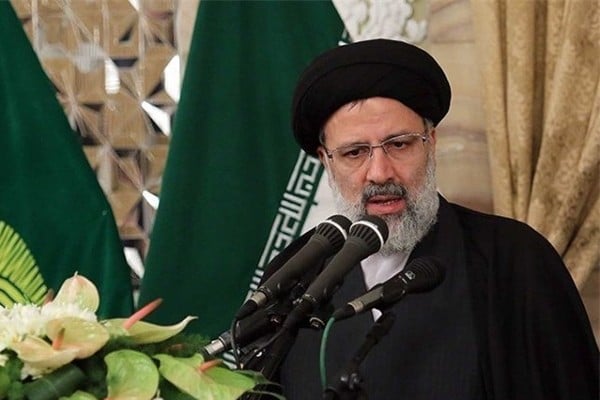With tensions rising between Tehran and Washington, neither side shows willingness to back down.
By Donna Rachel Edmunds, World Israel News
Iran has said it will not be pressured into re-entering talks to discuss a cessation of its nuclear program in exchange for the U.S. lifting sanctions.
Since April, indirect negotiations between Iran and the U.S. for a return to the Iran nuclear deal, which was abandoned by both parties in 2018, have been taking place in Vienna. But a sixth round of talks was postponed in June to allow for elections to take place in Iran, and has not resumed since.
With Iran pressing ahead with uranium enrichment up to weapons grade – which it insists is for peaceful purposes – Western nations are keen to bring the Iranians back to the negotiating table.
On Wednesday, both France and Germany urged Iran to return to the nuclear negotiations as soon as possible, Reuters reported. On Friday, the U.S. followed suit.
In an interview with Bloomberg TV, U.S. Special Representative to Iran Robert Malley said: “We can’t wait forever as Iran continues its nuclear advances, because at some point their advances will be such as to make a return to the JCPOA [the nuclear deal] much less valuable to the U.S. than it would otherwise be.”
He continued: “So, we’re prepared to be patient; we have been patient; we understand it’s a transition. We went through a transition as well. But let’s not drag this on for too long, because at some point, we’ll have to reach a different conclusion.”
However, Iranian President Ebrahim Raisi indicated his determination not to be forced into compliance.
“The Westerners and the Americans are after talks together with pressure … What kind of talks is that? I have already announced that we will have talks on our government’s agenda but not with … pressure,” Raisi told state television on Saturday, according to Reuters.
“Talks are on the agenda … We are seeking goal-oriented negotiations … so unjust sanctions on the Iranian people are lifted … and their lives can flourish,” he added.
In May, the International Atomic Energy Agency reported that Iran was enriching uranium up to 60% fissile purity, up from 20% in April. In mid-August, the IAEA informed member states that Iran is now using a second cascade for that purpose, effectively doubling the rate of production.
The 2015 nuclear deal capped enrichment at 3.67%, a rate suitable for energy purposes. Weapons grade uranium is enriched to 90%.
“If the other parties return to their obligations under the nuclear accord and Washington fully and verifiably lifts its unilateral and illegal sanctions … all of Iran’s mitigation and countermeasures will be reversible,” Foreign Ministry spokesman Saeed Khatibzadeh was quoted as saying at the time by state media, according to Reuters.


